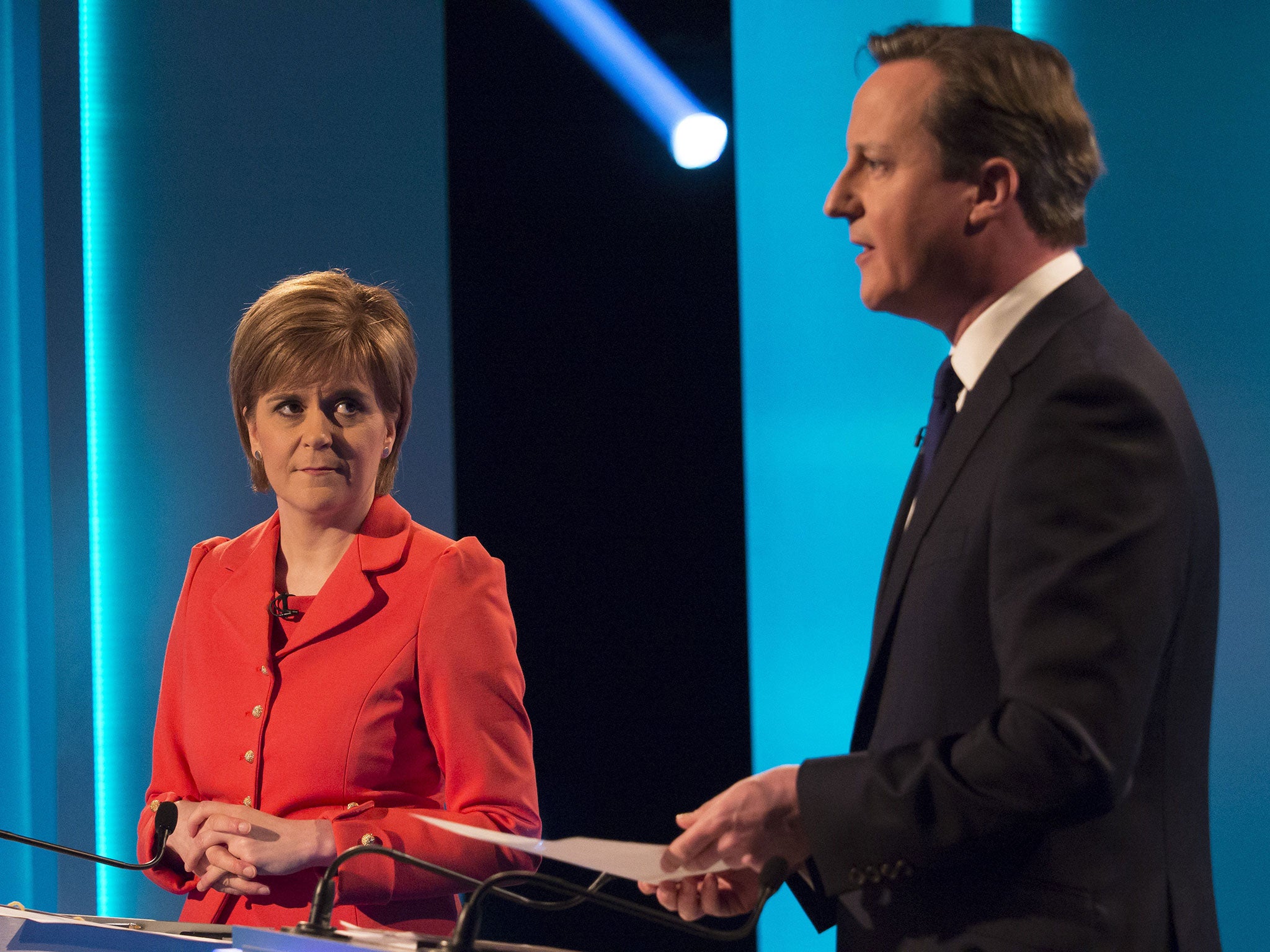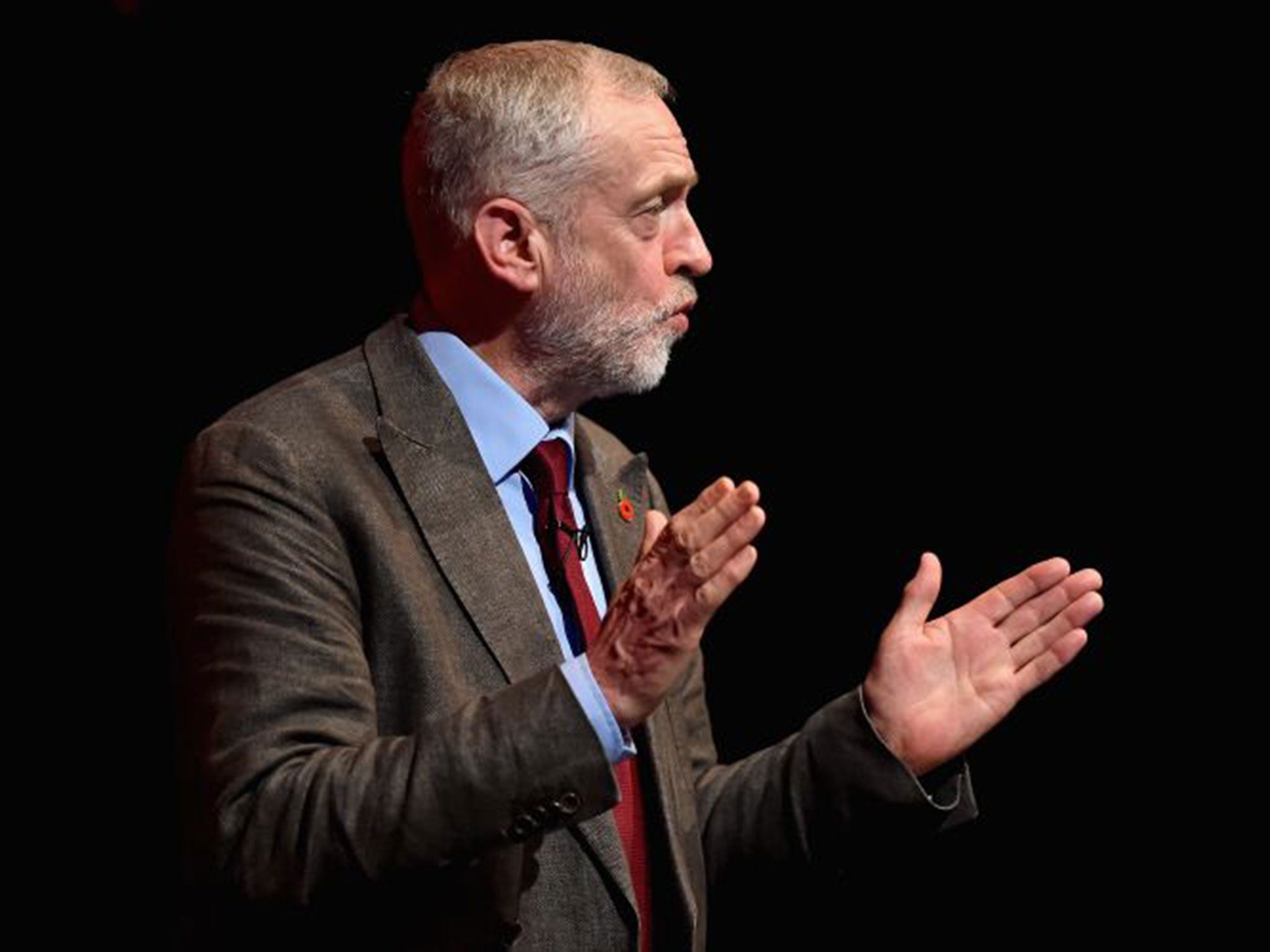Televised debates between the nation’s leaders could be just the thing to reawaken public interest in politics
Now that Mr Corbyn has backed the idea of live debates, and with the Scottish National Party and Liberal Democrat leaders also on board, the big question is whether David Cameron can be drawn in

Your support helps us to tell the story
From reproductive rights to climate change to Big Tech, The Independent is on the ground when the story is developing. Whether it's investigating the financials of Elon Musk's pro-Trump PAC or producing our latest documentary, 'The A Word', which shines a light on the American women fighting for reproductive rights, we know how important it is to parse out the facts from the messaging.
At such a critical moment in US history, we need reporters on the ground. Your donation allows us to keep sending journalists to speak to both sides of the story.
The Independent is trusted by Americans across the entire political spectrum. And unlike many other quality news outlets, we choose not to lock Americans out of our reporting and analysis with paywalls. We believe quality journalism should be available to everyone, paid for by those who can afford it.
Your support makes all the difference.Jeremy Corbyn has thrown down a gauntlet to David Cameron – and to the leaders of the other main parties – with a challenge to them to “test their arguments” in annual live televised debates on the state of the nation. It is certainly a novel idea because while we have had election-time debates in this country, we have never had annual ones. But Mr Corbyn says the sight and sound of our political leaders thrashing out the great issues of the day, live and without autocues and teams of advisers, would help people to “engage more in politics”.
He has a point, and if debates of this kind did any of that they would be more than welcome because the democratic process in Britain needs all the help it can get. Turnout in general elections, perhaps the most crucial measure of the health of any democracy, has been dropping for decades. Back in 1950, when Clement Attlee won his second term as Labour leader, 84 per cent of those who could vote made use of their right to do so. In the last election, only 66 per cent did the same. The lowest turnout in any election in the 1980s was 72 per cent.
In other words, popular participation in the single most important democratic contest in Britain has been waning for a long time. It is equally worrying that most people now vote only in general elections. Turnout in local elections, when they are held independently of general elections, hovers wretchedly at about 30 per cent. It is much the same with the European elections. Even the London mayoral ballot, which was hotly contested and widely covered, failed to induce a majority of Londoners actually to vote in it.

Railing against this collective switch-off from elections and from politics generally will not help matters, even if at one level it does look like an insult to the memory of those brave men and women who fought for our right to vote in the first place. Those who remain politically engaged must ask themselves why so many of their friends, relatives and neighbours do not seem to care who runs Parliament, the town hall or – don’t forget – the European Parliament. Failure to come up with ways to reconnect at least some of them with the business of choosing their leaders holds dangers for us all. The less that people engage in politics, the more parties became like cults and the less they reflect the aspirations and wishes of the majority.
Now that Mr Corbyn has backed the idea of live debates, and with the Scottish National Party and Liberal Democrat leaders also on board, the big question is whether David Cameron can be drawn in. Debates without the leader of the Conservative Party would be pointless, yet Mr Cameron’s antipathy to these duels is well known.
There is also no point in underestimating the dilemma he faces here. His poll ratings dipped when he seemed desperate to avoid a head-to-head with Ed Miliband while the latter was leading the Labour Party, but when Mr Cameron finally took part in two live debates in the spring, he did not perform especially well. The fear for him, and for any prime minister, is that such a forum offers the incumbent high risk for relatively little gain.
It would be a shame, however, if the narrow, calculating politician in Mr Cameron triumphed over the national leader and he spurned Mr Corbyn’s invitation. Indeed, as he will be not be fighting another general election, having pledged to step down by 2020, Mr Cameron has little to lose.
More regular duels between political leaders on the big national issues might not reconnect all of the millions of lost and alienated voters with the democratic process, but even if they touched a chord with only some, it would still give our democracy a shot in the arm. The only way to find out is to test it and see.
Join our commenting forum
Join thought-provoking conversations, follow other Independent readers and see their replies
Comments